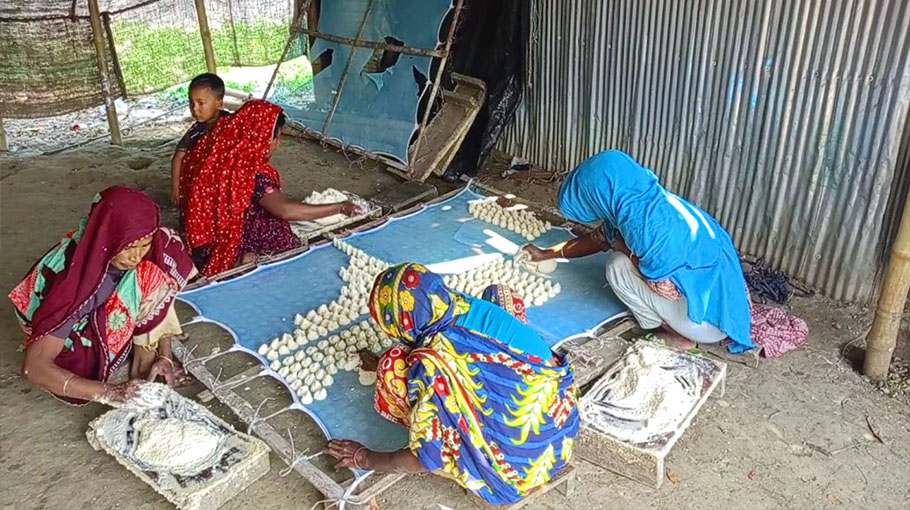Tale of an educated youth in Jhenaidah

When the more or least educated young men and women were passing time in despair for want of any suitable job, an educated young man of a Jhenaidah village have established himself as an entrepreneur making the lucrative Kumrabori (tablets made with pumpkin and maskalai).
Men and women, most of them women, were engaged in making the pellets in the first half of the day. The man Wahid Hasan has been sending the same to different parts of the country and earning handsome amount of money through his new business.
Wahid Hasan of village Garaganj under Shailkupa upazila in Jhenaidah when contacted at his Kumrabori making factory said he was in dilemma when he had completed the Master’s Degree in Sociology from Dhaka College. Without wasting any time for hunting job he had decided to establish a mini factory in the locality and started the same with a number of women. Wahid said he purchases mature pumpkin, better known as Chalkumra and the pulse Maskalai from local markets in a bulk quantity. The women make the pest of the two items and make the tablets known as Bori on bamboo made chatai or similar nets for drying up under the sun. The pellets are dried within two days and then loaded on the trucks for sending to Dhaka, Chittagong, Barishal, Khulna, Rajshahi, Mymensingh and some other districts.
According to the workaholic young man Wahid Hasan, he has been working with his factory for the last seven years where at least 250 kilograms of pumpkin and maskalai pest are used. The activities fully run between mid-November and mid-March, while the business runs anyway in remaining time of the year. The sale proceeds of the factory ensure Taka five thousand to seven thousand a day, he informed.
To ensure purity and safety, the man keeps the tablets in mini sachets to avoid mixing with other materials.
The industrious man said hunting of suitable job is not a mandatory for the unemployed men and women, and they might be involved with any work available in the locality where huge investment was a least important matter.
Wahid said it was easy to run the business investigating Taka 50 thousand a few years back, while the price hiking trend of all types of materials including pumpkin, maskalai, day labourers etc. had made the situation critical for them. Assistance from any commercial banks with least interest might help expand the business, Wahid Hasan said.
Some women and a number of school and college going girls were also seen making tablets at their leisure time.
The girls and women said they earn Taka 200 to 250 for their work for about four to five hours a day. The money helps them running their poor families or to deposit in banks for the betterment of the family members. Some of them had also helped their male counterparts to make a new house for them or purchase a small piece of land, they said.




